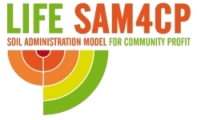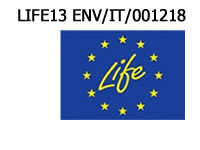SAM4CP



The project will propose a soil management model for the public good, creating a digital simulator to assess soil consumption linked to specific urban choices and thus ensure good spatial planning. The simulator is intended for the technical services of municipalities and other interested parties.
The soil provides a great variety of functions and eco-systemic services, as it has been pointed out by the working group of the European Commission (SWD (2012) 101 final) in the “Guidelines on best practice to limit, mitigate or compensate soil sealing”.
Most, or almost all, of the services provided by the soil is directly or indirectly useful for the mankind, and therefore it represents also a value in economic terms. It is therefore important, both in the framework of the management policies and in the territorial planning, assessing the economic consequences of the different choices in terms of territorial planning and city planning by estimating the costs and the benefits ascribable to different scenarios of the soil use.
The project aims to demonstrate the advantages of land use planning which, in decision-making processes, integrates the assessment of the environmental benefits of free soil: to ensure that the community has a significant reduction in land use, saving in terms of natural resources and public finances, exploiting soil functions in land governance instruments (carbon sequestration, biodiversity, water purification, soil erosion, timber production, pollination, agricultural production).
The actions to achieve these objectives are as follows:
-
Assess and quantify the environmental benefits provided by soil in terms of biophysical output (tonnes of CO2, wood, filtered water, quantities of agricultural products…).
-
The calculated biophysical quantities are used to economically quantify the environmental benefits rendered by the soil and can be included in the simulation software.
-
Develop an IT tool capable of simulating and assessing environmental losses caused by land artificialisation operations and quantifying the economic cost to the community.
-
Testing of the simulator functionalities: application to the General Regulatory Plans (GPR) in force in the metropolitan area of Turin and quantitative and qualitative evaluation of the environmental effects of the consumption of booked soil and therefore impermeable.
-
Research and implementation of instruments to promote the limitation of soil consumption and the achievement of the objectives of the Provincial Territorial Coordination Plan – PTC2.
-
Communication and dissemination of results
CSI-Piemonte is a project partner and is responsible for creating the digital simulator, both in web and desktop versions.
Video in Italian
The simulator developed and tested on 4 municipalities within the project, can be distributed to all local administrations of the Piedmontese territory and become a widely recognized and adopted tool in urban planning processes.
